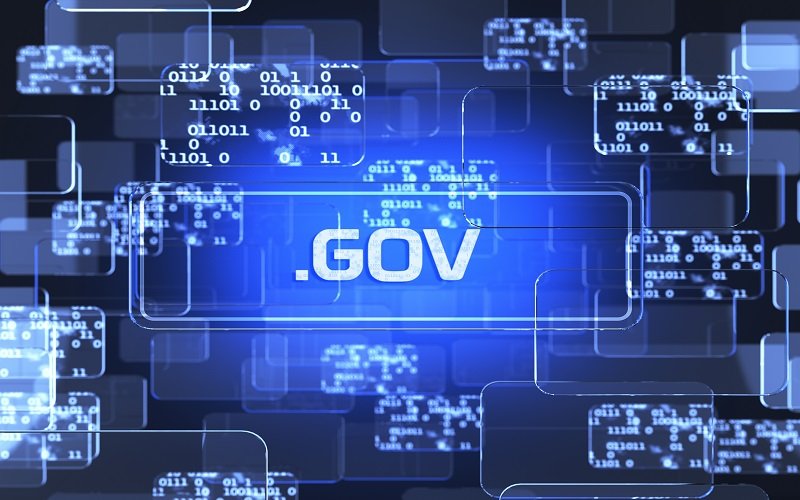Dr. Maha Hosain Aziz, the author of the book “Future World Order” and Professor at New York University based in the United States, participates in Risk Roundup to discuss the “Impact of COVID-19 Pandemic on the World Order”.
Impact of COVID-19 Pandemic on the World Order
The COVID-19 pandemic has ushered the world with a new set of complexities. While the pandemic is changing the way we live and work, we are also witnessing large-scale social and behavioral changes. Although it is impossible to predict the coming tomorrow, one thing is sure; the geopolitics of the COVID 19 pandemic will transform the human ecosystem.
For a short time, there were indicators that the first wave of COVID-19 seems to be leveling in some nations. However, reports are emerging that this virus is evolving further and is making a strong come back. As a result, the world order everyone is used to seems to be collapsing. Since the pandemic is pushing the world towards a profound and lasting shift in the relative balance of power, questions are emerging as to where this pandemic struggle will take us further. How will it reshape the global order?
It is essential to keep in mind that the future of the world order is not predetermined. This is especially relevant today as nations go through a pandemic. The reason is how nations survive the fallout of the pandemic will shape not only their economic and national security but also to what extent they will be able to influence other countries. Now when nations are overwhelmed at home dealing with not only their COVID 19 challenges but also ensuring their economic and national security, it is difficult to determine where countries will go from here.
While survival is at the core of each nation’s strategy, evaluating the impact of the COVID 19 pandemic on the world order begins with understanding nations’ preparedness.
Turning Points
The COVID-19 crisis indicates many turning points for the future of humanity. Due to the failure of many supply chains and many other trust issues, we are beginning to witness the reversal of globalization. Not only that, but the EU also seems to be in decline as well– as no political integration project can survive when risks and rewards are not shared equally. Furthermore, the deep ideological divide in the United States has got even deeper during COVID-19 having far-reaching implications. Also, China’s not so forthcoming reporting on the COVID-19 outbreak in Wuhan has raised serious questions about their competence to lead. Moreover, if the world deglobalizes as a result of COVID-19, it would create further complex challenges for China. As a result, it is crucial to evaluate the implications of these rapidly evolving turning points for the future of humanity.
While the impact of COVID 19 is different for each nation, it is nations’ preparedness that will determine their ability to provide global leadership for the coming tomorrow.
Fractured Nations
It seems that the COVID-19 pandemic is fracturing nations internally. The external alliances seem to be under strain as well. Amidst the COVID-19 health crisis, it will be interesting to see how any further weakening of economy and security amidst the internal or external cohesion of the world’s leading powers, will reshape the world.
For any nation to be able to lead successfully on a global stage necessitates projecting power beyond one’s borders. That is possible when there is collaboration, cooperation, cohesion, and solidarity within all internal and external components. History is the witness that weak, fractured societies, no matter their current state, cannot exert strategic influence or provide global leadership to shape the coming tomorrow.
While the geopolitics of cybersecurity was already driving nations inwards, the COVID-19 has accelerated protectionism. It is critical to evaluate whether this is a reversal from globalization towards protectionism or merely a pause to prepare systems, processes, and institutions to meet the complex challenges brought on by the COVID 19 pandemic.
Since the future of the world order is not preordained, where we go from here depends massively on not only the nation’s ability to survive the fallout of the pandemic but also how we collaborate and cooperate to protect the future of humanity.
The Speed of Transformative Changes
The COVID-19 pandemic has accelerated the speed of transformative changes in cyberspace—which is rapidly becoming a fact of daily life. Almost overnight, the COVID-19 pandemic has pushed all the interactions in the digital domain. The trust in the traditional systems and status quo is diminishing rapidly.
Over the years, we have always focused on what our leaders do. However, today, social media has shifted the conversation from leaders to citizens as the expectations are changing rapidly. As a result, it is essential to evaluate:
- What role will individuals play in changing global dynamics?
- How would it influence not only the transformation of systems but also shape the global order?
- How will citizens’ involvement reshape the political system?
- Will political power be more inclusive?
Power Shift to Technology Companies
Cyberspace and digital technology are changing the nature and sources of power. Since COVID-19 is driving a significant power shift in favor of digital technology companies, it is crucial to understand its meaning for international systems and the world order.
The pandemic has brought each nation an entirely new world full of risks. Governments are beginning to understand the implications of the evolving COVID-19 pandemic far beyond infection counts, crossing economic, education, governance, and trade policies. While the relationship between the COVID-19 pandemic and national security is complicated, and at times indirect, the force and pace of technological change expected in the coming years will present each nation with challenges and opportunities for all its components. It is crucial to understand the expected consequences of risks at all levels. The time is now to begin understanding the Impact of the COVID 19 Pandemic on the World Order.
For more, please watch the Risk Roundup Webcast or hear the Risk Roundup Podcast
About the Guest
Dr. Maha Hosain Aziz is an NYU Professor, Author & Cartoonist in global risk & prediction; published her first, award-winning and Amazon bestselling book on global risk, FUTURE WORLD ORDER (Apr 2019), with fellowship support from the LSE’s Institute of Global Affairs; launched 2020 edition in Jan 2020 at the Commonwealth Secretariat. Besides her work as a professor at NYU, she teaches global risk with Pioneer Academics and other e-learning startups.
She is also a Cartoonist who drew the five-time award-winning THE GLOBAL KID (www.theglobalkid.org) – the crowdfunded, educational comic book about politics for tween readers (all sales to youth education non-profits), which is being adapted into a political comic book for adults. On occasion, she still blogs for Medium.com and consults with governments via geopolitical consultancy Wikistrat and other networks.
She is a Jordanian-born Pakistani who grew up in the Middle East (Jordan, Saudi Arabia), Southeast Asia (Singapore, Malaysia), Europe (UK, Greece), and the US. And she is a social scientist trained at Brown (BA), Columbia (MA), and the LSE (MSc, Ph.D.).
About the Host of Risk Roundup
Jayshree Pandya (née Bhatt), Ph.D., is a leading expert at the intersection of science, technology, and security and is the Founder and Chief Executive Officer of Risk Group LLC. She has been involved in a wide range of research, spanning security of and from science and technology domains. Her work is currently focused on understanding how converging technologies and their interconnectivity across cyberspace, aquaspace, geospace, and space (CAGS), as well as individuals and entities across nations: their governments, industries, organizations, and academia (NGIOA), create survival, security, and sustainability risks. This research is pursued to provide strategic security solutions for the future of humanity. From the National Science Foundation to organizations from across the United States, Europe, and Asia, Dr. Pandya is an invited speaker on emerging technologies, technology transformation, digital disruption, and strategic security risks. Her work has contributed to more than 100 publications in the areas of science and commerce. She is the author of the books, Geopolitics of Cybersecurity and The Global Age.
About Risk Roundup
Risk Roundup, a global initiative launched by Risk Group, is a security risk reporting for risks emerging from existing and emerging technologies, technology convergence, and transformation happening across cyberspace, aquaspace, geospace, and space. Risk Roundup is released in both audio (Podcast) and video (Webcast) format. It is available for subscription at (Risk Group Website, iTunes, Google Play, Stitcher Radio, Android, and Risk Group Professional Social Media).
About Risk Group
Risk Group is a Strategic Security Risk Research Platform and Community. Risk Group’s Strategic Security Community and Ecosystem is the first and only cross-disciplinary and collective community that is made of top scientists, security professionals, thought leaders, entrepreneurs, philanthropists, policymakers, and academic institutions from across nations collaborating to research, review, rate and report strategic security risks to protect the future of humanity.
Copyright Risk Group LLC. All Rights Reserved





 How Are Businesses Adjusting To COVID-19 Complexities?
How Are Businesses Adjusting To COVID-19 Complexities?